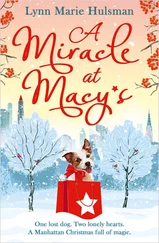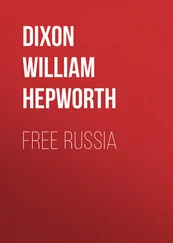Nikolai Nekrasov - Who Can Be Happy and Free in Russia?
Здесь есть возможность читать онлайн «Nikolai Nekrasov - Who Can Be Happy and Free in Russia?» весь текст электронной книги совершенно бесплатно (целиком полную версию без сокращений). В некоторых случаях можно слушать аудио, скачать через торрент в формате fb2 и присутствует краткое содержание. Год выпуска: 2005, Жанр: Поэзия, на английском языке. Описание произведения, (предисловие) а так же отзывы посетителей доступны на портале библиотеки ЛибКат.
- Название:Who Can Be Happy and Free in Russia?
- Автор:
- Жанр:
- Год:2005
- ISBN:нет данных
- Рейтинг книги:3 / 5. Голосов: 1
-
Избранное:Добавить в избранное
- Отзывы:
-
Ваша оценка:
- 60
- 1
- 2
- 3
- 4
- 5
Who Can Be Happy and Free in Russia?: краткое содержание, описание и аннотация
Предлагаем к чтению аннотацию, описание, краткое содержание или предисловие (зависит от того, что написал сам автор книги «Who Can Be Happy and Free in Russia?»). Если вы не нашли необходимую информацию о книге — напишите в комментариях, мы постараемся отыскать её.
Who Can Be Happy and Free in Russia? — читать онлайн бесплатно полную книгу (весь текст) целиком
Ниже представлен текст книги, разбитый по страницам. Система сохранения места последней прочитанной страницы, позволяет с удобством читать онлайн бесплатно книгу «Who Can Be Happy and Free in Russia?», без необходимости каждый раз заново искать на чём Вы остановились. Поставьте закладку, и сможете в любой момент перейти на страницу, на которой закончили чтение.
Интервал:
Закладка:
That nought shall persuade them 430
To turn their steps homewards
To kiss wives and children,
To see the old people,
Until they have settled
For once and forever
The subject of discord:
Until they've discovered
The man who, in Russia,
Is happy and free.
They swear to each other 440
To keep this, their promise,
And daybreak beholds them
Embosomed in slumber
As deep and as dreamless
As that of the dead.
PART I.
CHAPTER I.
THE POPE [7] Priest
The broad sandy high-road
With borders of birch-trees
Winds sadly and drearily
Into the distance;
On either hand running
Low hills and young cornfields,
Green pastures, and often—
More often than any—
Lands sterile and barren.
And near to the rivers 10
And ponds are the hamlets
And villages standing—
The old and the new ones.
The forests and meadows
And rivers of Russia
Are lovely in springtime,
But O you spring cornfields,
Your growth thin and scanty
Is painful to see.
"'Twas not without meaning 20
That daily the snow fell
Throughout the long winter,"
Said one to another
The journeying peasants:—
"The spring has now come
And the snow tells its story:
At first it is silent—
'Tis silent in falling,
Lies silently sleeping,
But when it is dying 30
Its voice is uplifted:
The fields are all covered
With loud, rushing waters,
No roads can be traversed
For bringing manure
To the aid of the cornfields;
The season is late
For the sweet month of May
Is already approaching."
The peasant is saddened 40
At sight of the dirty
And squalid old village;
But sadder the new ones:
The new huts are pretty,
But they are the token
Of heartbreaking ruin. [8] New huts are built only when the village has been destroyed by fire.
As morning sets in
They begin to meet people,
But mostly small people:
Their brethren, the peasants, 50
And soldiers and waggoners,
Workmen and beggars.
The soldiers and beggars
They pass without speaking.
Not asking if happy
Or grievous their lot:
The soldier, we know,
Shaves his beard with a gimlet,
Has nothing but smoke
In the winter to warm him,— 60
What joy can be his?
As evening is falling
Appears on the high-road
A pope in his cart.
The peasants uncover
Their heads, and draw up
In a line on the roadway,
Thus barring the passage
In front of the gelding.
The pope raised his head, 70
Looked inquiringly at them.
"Fear not, we won't harm you,"
Luká said in answer.
(Luká was thick-bearded,
Was heavy and stolid,
Was obstinate, stupid,
And talkative too;
He was like to the windmill
Which differs in one thing
Alone from an eagle: 80
No matter how boldly
It waves its broad pinions
It rises no higher.)
"We, orthodox peasants,
From District 'Most Wretched,'
From Province 'Hard Battered,'
From 'Destitute' Parish,
From neighbouring hamlets,
'Patched,' 'Barefoot,' and 'Shabby,'
'Bleak,' 'Burnt-Out,' and 'Hungry,' 90
From 'Harvestless' also,
Are striving to settle
A thing of importance;
A trouble torments us,
It draws us away
From our wives and our children,
Away from our work,
Kills our appetites too.
Pray, give us your promise
To answer us truly, 100
Consulting your conscience
And searching your knowledge,
Not feigning nor mocking
The question we put you.
If not, we will go
Further on."
"I will promise
If you will but put me
A serious question
To answer it gravely, 110
With truth and with reason,
Not feigning nor mocking,
Amen!"
"We are grateful,
And this is our story:
We all had set out
On particular errands,
And met in the roadway.
Then one asked another:
Who is he,—the man 120
Free and happy in Russia?
And I said, 'The pope,'
And Román, 'The Pomyéshchick,'
And Prov said, 'The Tsar,'
And Demyán, 'The official';
'The round-bellied merchant,'
Said both brothers Goóbin,
Mitródor and Ívan;
Pakhóm said, 'His Lordship,
The Tsar's Chief Adviser.' 130
"Like bulls are the peasants;
Once folly is in them
You cannot dislodge it
Although you should beat them
With stout wooden cudgels,
They stick to their folly
And nothing can move them.
We argued and argued,
While arguing quarrelled,
While quarrelling fought, 140
Till at last we decided
That never again
Would we turn our steps homeward
To kiss wives and children,
To see the old people,
Until we have found
The reply to our question,
Until we've discovered
For once and forever
The man who, in Russia, 150
Is happy and free.
Then say, in God's truth,
Is the pope's life a sweet one?
Would you, honoured father,
Proclaim yourself happy?"
The pope in his cart
Cast his eyes on the roadway,
Fell thoughtful and answered:
"Then, Christians, come, hear me:
I will not complain 160
Of the cross that I carry,
But bear it in silence.
I'll tell you my story,
And you try to follow
As well as you can."
"Begin."
"But first tell me
The gifts you consider
As true earthly welfare;
Peace, honour, and riches,— 170
Is that so, my children?"
They answer, "It is so."
"And now let us see, friends,
What peace does the pope get?
In truth, then, I ought
To begin from my childhood,
For how does the son
Of the pope gain his learning,
And what is the price
That he pays for the priesthood? 180
'Tis best to be silent." [9] The lines of asterisks throughout the poem represent passages that were censored in the original.
"Our roadways are poor
And our parishes large,
And the sick and the dying,
The new-born that call us,
Do not choose their season:
In harvest and hay-time,
In dark nights of autumn,
Through frosts in the winter,
Through floods in the springtime, 190
Go—where they may call you.
You go without murmur,
If only the body
Need suffer alone!
But no,—every moment
The heart's deepest feelings
Are strained and tormented.
Believe me, my children,
Some things on this earth
One can never get used to: 200
No heart there exists
That can bear without anguish
The rattle of death,
The lament for the lost one,
The sorrow of orphans,
Amen! Now you see, friends,
The peace that the pope gets."
Not long did the peasants
Stand thinking. They waited
To let the pope rest, 210
Then enquired with a bow:
"And what more will you tell us?"
"Well, now let us see
If the pope is much honoured;
And that, O my friends,
Is a delicate question—
I fear to offend you….
But answer me, Christians,
Whom call you, 'The cursed
Stallion breed?' Can you tell me?"
The peasants stand silent 221
In painful confusion;
Интервал:
Закладка:
Похожие книги на «Who Can Be Happy and Free in Russia?»
Представляем Вашему вниманию похожие книги на «Who Can Be Happy and Free in Russia?» списком для выбора. Мы отобрали схожую по названию и смыслу литературу в надежде предоставить читателям больше вариантов отыскать новые, интересные, ещё непрочитанные произведения.
Обсуждение, отзывы о книге «Who Can Be Happy and Free in Russia?» и просто собственные мнения читателей. Оставьте ваши комментарии, напишите, что Вы думаете о произведении, его смысле или главных героях. Укажите что конкретно понравилось, а что нет, и почему Вы так считаете.











